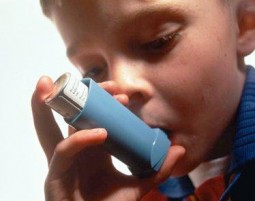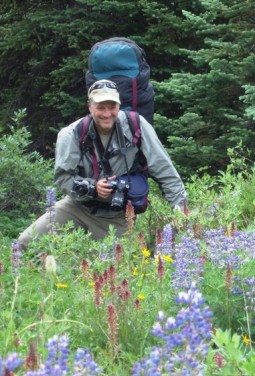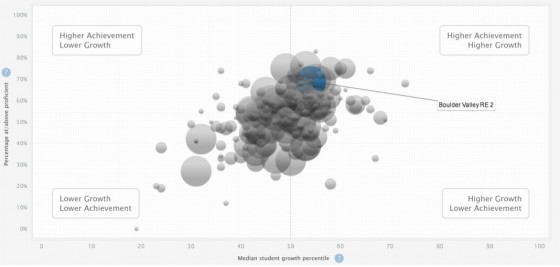
Hosts: Jim Pullen and Beth Bartel
Producer: Jim Pullen
Engineer: Jim Pullen
Executive Producer: Joel Parker
Listen to the show:
Podcast: Play in new window | Download (Duration: 23:52 — 21.9MB)
Subscribe: RSS
The KGNU Science Show

Hosts: Jim Pullen and Beth Bartel
Producer: Jim Pullen
Engineer: Jim Pullen
Executive Producer: Joel Parker
Listen to the show:
Podcast: Play in new window | Download (Duration: 23:52 — 21.9MB)
Subscribe: RSS

Why Calories Count (start time 7:10). More than a billion people in the world suffer from too few of them. About the same number suffer from too many. We’re talking about calories. They’re vital to human health, indeed our very survival. A new book, called “Why Calories Count: From Science to Politics,” delves into the many dimensions of calories – personal, scientific, and political. How On Earth co-host Susan Moran interviews the book’s co-author, Marion Nestle, a molecular biologist and professor at New York University. Her co-author is Malden Nesheim of Cornell University.
Gold Lab Symposium (start time: 17:24). This Friday, CU Boulder presents the annual Gold Lab Symposium. This year’s theme is “Tempus Fugit.” That means, “Time Flies,” and speakers this year will focus on why scientists and policy makers must remember that real people and real patients need innovations that lead to better healthcare, right now. For a sneak preview of what “better” might mean, up next, How On Earth’s Shelley Schlender talks with Symposium founder, Larry Gold about one of this year’s speakers, Allen Jacobson. Jacobson has a cure for some, not all, but some children who have the deadly disease, muscular dystrophy.
Hosts: Susan Moran and Jim Pullen
Producer: Jim Pullen
Engineer: Jim Pullen
Headline contributions: Breanna Draxler and Joel Parker
Feature contribution: Shelley Schlender
Executive Producer: Joel Parker
Listen to the show:
Podcast: Play in new window | Download (Duration: 25:58 — 23.8MB)
Subscribe: RSS

Boulder is for Robotics (start time 4:00). “It starts really with the fact that a lot of robotics materials, sensors and manufacturing are here in Colorado.” Boulder as a hub for robotics? You bet. KGNU’s Tom McKinnon reports from the first Boulder is for Robotics meetup, which drew over 100 participants. Learn about some local projects, from robots for agriculture to robots for kids.

Hosts: Tom McKinnon & Beth Bartel
Producer: Beth Bartel
Engineers: Jim Pullen and Shelley Schlender
Additional contributions: Breanna Draxler & Susan Moran
Executive producer: Shelley Schlender
Listen to the show:
Podcast: Play in new window | Download (Duration: 23:58 — 21.9MB)
Subscribe: RSS
 We look at the strange rise in autoimmune diseases, allergies and asthma, with experts from the University of Chicago Celiac Disease Center and with National Jewish Health Immunlogist Andy Liu in Denver. And, we explore whether genetically modified crops might be increasing our chance of getting ill, with Agricultural Scientist, Charles Benbrook of The Organic Center.
We look at the strange rise in autoimmune diseases, allergies and asthma, with experts from the University of Chicago Celiac Disease Center and with National Jewish Health Immunlogist Andy Liu in Denver. And, we explore whether genetically modified crops might be increasing our chance of getting ill, with Agricultural Scientist, Charles Benbrook of The Organic Center.
In this report, Shelley Schlender takes a look at genetically modified crops and other modern farming techniques, and how they might, or might not be, connected to the dramatic rise in immune disorders. As part of this report, she’ll look into the strange case of a bacteria in GM corn that was NOT supposed to get into human bloodstream. Recent research indicates that it does. And she’ll discuss the hygiene hypothesis with health experts who suggest that our society has become so “clean” that, in some ways, it makes us sick.
Go here for extended interviews with Charles Benbrook, Andy Liu, Carol Shilson, Stefano Guandalini.
Co-hosts: Susan Moran and Joel Parker
Engineer: Tom McKinnon
Executive Producer: Susan Moran
Show Producer: Shelley Schlender
Podcast: Play in new window | Download (Duration: 25:07 — 23.0MB)
Subscribe: RSS
(credit: NASA, ESA, M. Showalter, Z. Levay)”]![hs-2011-23-d-web_print Pluto and its moons [click to enlarge] (credit: NASA, ESA, M. Showalter, Z. Levay)](http://howonearthradio.org/wp-content/uploads/2011/08/hs-2011-23-d-web_print-255x255.jpg) Feature #1:
Feature #1:
Last month, astronomers working on the Hubble Space Telescope announced the discovery of another, fourth moon around Pluto; this moon is so small that it could fit easily inside Boulder County (a pretty tricky thing to find at a distance of three and a half billion miles). The researchers who found the new moon were making observations in support of NASA’s New Horizons spacecraft, which is en route to fly by and study Pluto in 2015, and continue onward to explore the mysterious region beyond Pluto’s orbit known as the Kuiper Belt. How On Earth’s Ted Burnham recently met with Alan Stern, principal investigator on New Horizons, to talk about what the discovery means for that mission. [An extended version of the interview also is available.]

Feature #2:
The significant loss of species on Earth is primarily due to human destruction of habitats, forests and other wild nature, to make room for new development and agriculture. Climate change is also accelerating the rate of species extinction. Among the efforts worldwide to protect wilderness and nature so wild animals can survive is a Boulder-based nonprofit called The WILD Foundation. Harvey Locke is the organization’s vice president for conservation strategy and he helped launch the Yellowstone to Yukon Conservation Initiative (Y2Y) several years ago and oversees a global campaign called Nature Needs Half. Y2Y’s goal is to create a continuous 2,000-mile corridor for wildlife from Yellowstone National Park in the U.S. to the Yukon in Northern Canada. Harvey joins us in the studio to talk about that campaign and the science behind wildlife preservation targets.
Co-hosts: Susan Moran and Joel Parker
Engineer: Joel Parker
Executive Producer: Susan Moran
Show Producer: Joel Parker
Podcast: Play in new window | Download (Duration: 24:36 — 22.5MB)
Subscribe: RSS
 In November Boulder will be asking the voters to approve the conversion of the electrical utility from one run by Xcel Energy to one run by the city. While there are many, many political issues associated with this vote, there are technical ones as well. We have on our show today Ken Regelson. Ken is a sustainable energy consultant and member of the steering and tech modeling committees of RenewablesYes.org. He holds a masters degree in electrical engineering. And he tells us he’s available to speak on Boulder’s clean energy future at your neighborhood group, business, or at your next dinner party.
In November Boulder will be asking the voters to approve the conversion of the electrical utility from one run by Xcel Energy to one run by the city. While there are many, many political issues associated with this vote, there are technical ones as well. We have on our show today Ken Regelson. Ken is a sustainable energy consultant and member of the steering and tech modeling committees of RenewablesYes.org. He holds a masters degree in electrical engineering. And he tells us he’s available to speak on Boulder’s clean energy future at your neighborhood group, business, or at your next dinner party.
Link to the Trojan Asteroid animation.
Co-hosts: Chip Grandits and Tom McKinnon
Engineer: Ted Burnham
Executive Producer: Susan Moran
Producer: Tom McKinnon
Podcast: Play in new window | Download (Duration: 23:51 — 21.8MB)
Subscribe: RSS

In honor of KGNU’s Kid’s Week, we go to the Boulder County Science Fair with How on Earth’s Tom McKinnon. In turns out three of the five students Tom interviewed before the judging began ended up as winners at the science show! Then, we look at CSAPs-Colorado’s Student Assessment Program. That style of standardized test for Reading, Writing, Math and Science is being phased out, in favor of The Colorado Growth Model that’s so innovative, it’s being adopted in several other states. How on Earth’s Shelley Schlender interviews cognitive scientist Bill Bonk, who’s on the team developing the Colorado Growth Model, which you can see at schoolview.org.
Hosts: Joel Parker and Tom McKinnon
Producer: Shelley Schlender
Podcast: Play in new window | Download (Duration: 23:49 — 27.3MB)
Subscribe: RSS

Our two features for this week’s show: Susan Moran interviewed Joel Smith, principal at Stratus Consulting in Boulder, who has been helping the city adapt to climate change—in particular, by smartly managing its water supply; and Tom Yulsman interviewed John Troeltzsch, the Kepler mission program manager for Boulder-based Ball Aerospace, which built one of the key instruments for the mission, as well as the spacecraft itself.
Cohosts: Susan Moran, Tom Yulsman
Producer: Susan Moran
Listen to the show:
Podcast: Play in new window | Download (Duration: 23:54 — 21.9MB)
Subscribe: RSS